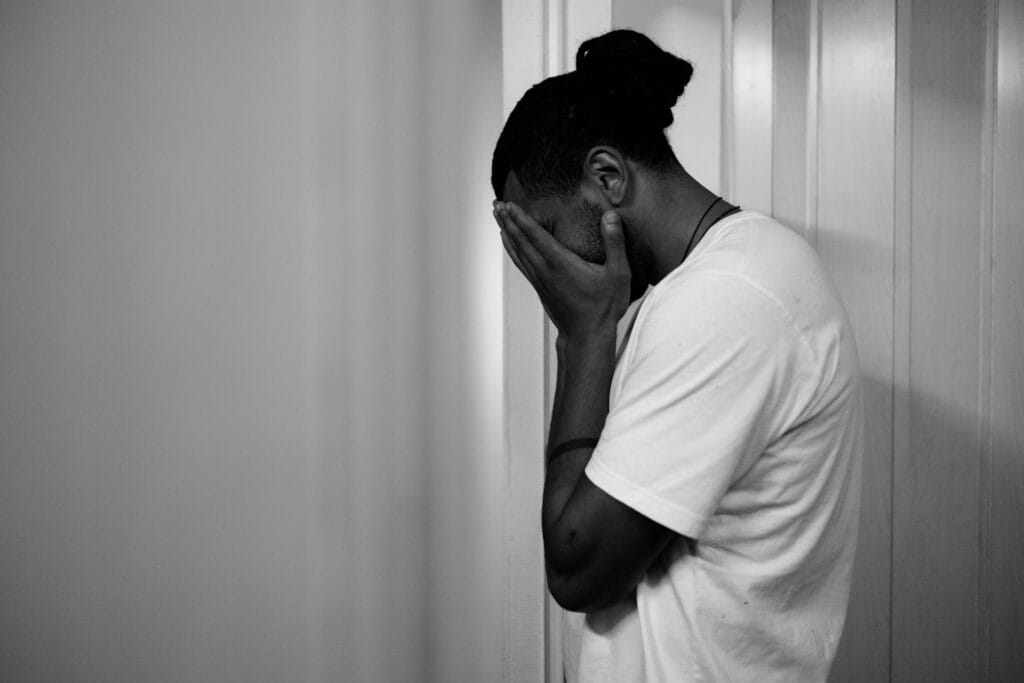
At Meta Addiction Treatment, we recognize the profound impact that anxiety can have on every aspect of life. From disrupting daily routines to hindering personal relationships and professional aspirations, anxiety can be overwhelming and debilitating. However, we also firmly believe that anxiety is treatable, and no one should have to navigate its challenges alone. That's why at Meta we're dedicated to providing comprehensive anxiety treatment solutions that offer lasting relief and empower individuals to regain control of their lives.
Anxiety disorders manifest in different forms, each with its own set of symptoms, triggers, and effects. Identifying the specific type of anxiety a person is dealing with is crucial for finding the most effective treatment. Below are some of the most commonly diagnosed anxiety disorders:
Generalized Anxiety Disorder (GAD): Marked by ongoing, excessive worry that’s hard to manage and often accompanied by physical signs like restlessness, fatigue, and muscle tension.
Panic Disorder: Characterized by sudden, unpredictable panic attacks that cause intense fear along with physical symptoms such as chest pain, dizziness, and difficulty breathing.
Social Anxiety Disorder: Involves an intense fear of social or performance situations, often resulting in avoidance behaviors and emotional distress during everyday interactions.
Specific Phobias: Involve overwhelming fear of certain objects or situations—like heights, flying, or animals—that often exceeds the actual level of threat.
Each disorder requires a tailored treatment approach, highlighting the importance of individualized care.

Anxiety is a common condition that can influence every part of a person’s life—mentally, physically, and socially. While it’s natural to feel anxious from time to time, persistent and overwhelming anxiety can be debilitating, disrupting daily life and overall well-being. It not only affects how people think and feel but also produces real physical symptoms and can strain relationships and social interactions. Recognizing the broad impact of anxiety helps highlight that it’s more than just nervousness—it’s a serious mental health issue.
Anxiety doesn't just live in the mind—it takes a physical toll as well. When anxiety kicks in, the body’s stress response—often called the “fight-or-flight” mode—is triggered. This can cause symptoms such as increased heart rate, rapid breathing, muscle tension, and sweating. When anxiety becomes chronic, these physical responses can persist, leading to long-term issues like headaches, gastrointestinal problems, and sleep disturbances, including insomnia.
The prolonged presence of stress can wear down the body over time. Chronic anxiety is linked to a higher risk of high blood pressure and heart problems due to the continued strain on the cardiovascular system. Elevated cortisol levels caused by long-term stress can weaken the immune system, promote inflammation, and contribute to conditions such as chronic pain or autoimmune disorders. Many people also develop unhealthy coping habits—like overeating, drinking excessive caffeine, or substance use—which can worsen physical symptoms. Early management through healthy routines, professional therapy, and medical support can help minimize these health risks.
Anxiety strongly affects mental and emotional health. It often brings about excessive worrying, self-criticism, and an ongoing feeling of unease. Racing thoughts and intrusive worries can make it difficult to concentrate or feel calm, frequently leading to indecisiveness and a fear of making mistakes. Left unchecked, chronic anxiety may lead to depression, as people begin to feel emotionally overwhelmed and powerless.
Emotionally, anxiety can fuel a cycle of fear and avoidance. Individuals may become more irritable, experience frequent mood shifts, and feel overly sensitive to stress or criticism. Fear of judgment, failure, or rejection can erode self-esteem and may trigger panic attacks—intense episodes of fear marked by physical symptoms like chest tightness or shortness of breath. These emotional challenges often require therapy or other forms of support to help individuals build resilience and regain emotional balance.
Anxiety’s impact on social life can be profound. Many people begin to avoid social situations, withdrawing from conversations, events, or even day-to-day interactions due to fear of embarrassment or rejection. For those with social anxiety disorder, simple acts like speaking in a group or making eye contact can be incredibly stressful. This withdrawal can lead to loneliness, a drop in self-confidence, and increased feelings of isolation or depression.
In relationships, anxiety may create tension or misunderstandings. Some may lean heavily on loved ones for reassurance, while others might become distant or irritable, straining both personal and professional connections. Miscommunication and emotional detachment are common, and in the workplace, anxiety may limit one’s ability to engage, collaborate, or seek advancement. Support from therapy, peer groups, and self-help tools can play a vital role in rebuilding confidence and fostering strong, supportive relationships.
Anxiety can affect people in many different ways, often showing up through physical sensations, behavioral changes, and psychological distress. While occasional anxiety is a normal response to stress, anxiety disorders are more intense, persistent, and can interfere with daily functioning. Understanding the common signs in each area can help identify when anxiety may be more than just a temporary feeling.
Anxiety often triggers noticeable changes in the body, largely due to the activation of the body’s stress response. These physical symptoms can range from mild discomfort to intense sensations that may mimic other health conditions.
Rapid heartbeat or palpitations
Shortness of breath or hyperventilation
Muscle tension or aches
Headaches or migraines
Stomachaches, nausea, or digestive issues
Sweating or chills
Dizziness or lightheadedness
Fatigue or trouble sleeping (insomnia)
People with anxiety may change how they act, often without realizing it. These behavioral signs reflect attempts to cope with or avoid anxiety-provoking situations, but they can lead to long-term challenges if left unaddressed.
Avoiding certain people, places, or activities
Restlessness or constant fidgeting
Difficulty completing tasks or staying organized
Procrastination or indecision
Withdrawal from social interactions
Reassurance-seeking or excessive checking
Decline in work or academic performance
Anxiety has a strong impact on a person’s thoughts and emotions. These psychological signs are often internal and harder to detect from the outside, but they play a major role in how anxiety feels on a day-to-day basis.
Excessive worry or fear, often irrational
Persistent negative thinking or catastrophizing
Difficulty concentrating or a “foggy” mind
Irritability or feeling on edge
Panic or sudden waves of intense fear
Low self-esteem or self-doubt
Feeling overwhelmed or out of control

Effectively managing anxiety disorders often involves a multifaceted approach, blending therapy, lifestyle changes, and, in some cases, medication. There’s no one-size-fits-all solution—the most effective treatment plan is tailored to each individual’s unique needs, symptom severity, and personal preferences. While therapy alone may be sufficient for some, many people benefit most from a combination of strategies that support long-term stability and prevent relapse.
Therapy is a cornerstone in treating anxiety and often the first line of intervention. It helps individuals understand their anxiety, develop healthier thought patterns, and build practical coping strategies. Several evidence-based approaches include:
Cognitive-Behavioral Therapy (CBT): Focuses on identifying and reframing irrational thoughts, and includes exposure techniques to help reduce fear responses in a controlled setting.
Dialectical Behavior Therapy (DBT): Teaches emotional regulation, mindfulness, and distress tolerance—especially helpful for intense emotional responses tied to anxiety.
Exposure Therapy: Ideal for phobias and social anxiety, this method gradually exposes individuals to feared situations to reduce avoidance and desensitize fear.
Acceptance and Commitment Therapy (ACT): Encourages individuals to accept anxious thoughts without judgment and commit to values-driven actions.
Psychodynamic Therapy: Explores unresolved conflicts and deep-rooted emotional patterns that may contribute to chronic anxiety.
For moderate to severe anxiety, medication may be a valuable part of treatment, especially when symptoms interfere with daily functioning. Medications are often used alongside therapy to provide more comprehensive relief.
SSRIs (Selective Serotonin Reuptake Inhibitors): Common antidepressants like Prozac (fluoxetine) and Zoloft (sertraline) that help regulate serotonin levels.
SNRIs (Serotonin-Norepinephrine Reuptake Inhibitors): Medications like Effexor (venlafaxine) and Cymbalta (duloxetine) that affect both serotonin and norepinephrine.
Benzodiazepines: Fast-acting anti-anxiety drugs (e.g., Xanax, Ativan) used short-term due to the risk of dependency.
Beta-Blockers: Help control physical symptoms like rapid heartbeat and shaking—often used for situational or performance anxiety.
Buspirone: A non-sedating, non-addictive option that gradually eases anxiety symptoms over time.
Healthy lifestyle habits can make a major difference in managing anxiety and enhancing emotional resilience. These daily practices support both mental and physical well-being:
Exercise: Regular movement—like walking, yoga, or strength training—lowers stress and boosts feel-good brain chemicals.
Balanced Diet: Nutrient-rich foods support brain health and emotional stability.
Consistent Sleep Routine: Good sleep hygiene, such as regular bedtimes and screen-free wind-down routines, helps regulate mood and energy.
Relaxation Practices: Techniques like deep breathing, meditation, and progressive muscle relaxation calm the nervous system.
Limit Stimulants: Reducing caffeine, nicotine, and other stimulants can minimize anxiety spikes and restlessness.
Connection plays a vital role in healing. Having a strong support system can ease the emotional burden of anxiety and offer encouragement through the recovery process.
Open Conversations: Sharing with trusted friends or family can provide emotional relief and grounding.
Peer Support Groups: Whether online or in person, these groups create community and allow people to exchange coping tools and experiences.
Professional Support: Therapists, counselors, and coaches offer structure, guidance, and accountability to help navigate the path to recovery.
Many individuals find value in holistic and natural approaches that complement traditional treatment:
Herbal Supplements: Ingredients like chamomile, ashwagandha, and lavender may support calmness—though medical guidance is advised when using them alongside medication.
Aromatherapy: Essential oils, particularly lavender and bergamot, are known for their calming effects and can aid sleep and relaxation.
Acupuncture: May help balance the nervous system and promote a sense of calm.
Massage Therapy: Relieves muscle tension and promotes a physical sense of relaxation.
Anxiety disorders are highly treatable, and recovery is absolutely possible. Finding the right combination of therapies and practices may take time and patience, but with persistence and support, meaningful progress can be made. Whether through professional treatment, lifestyle changes, or alternative therapies, no one has to manage anxiety alone. With the right tools, a more peaceful and balanced life is within reach.

If you or a loved one needs help with mental health, call us today at 844-909-2560, or email us at info@metaaddictiontreatment.com. You can also visit any one of our three locations, which are open 24/7:
If you or a loved one is ready to take the first step towards overcoming anxiety, we're here to help. Contact us today to schedule a confidential consultation and learn more about our comprehensive anxiety treatment solutions. Our compassionate and experienced team is dedicated to supporting you every step of the way on your journey towards lasting relief from anxiety.
Don't let anxiety hold you back any longer–reach out to us today and take the first step towards a brighter, anxiety-free future.